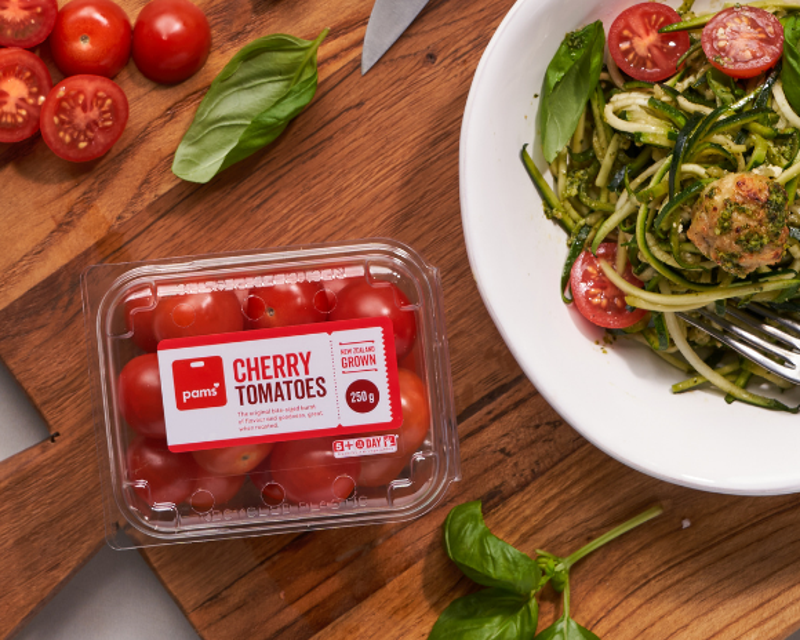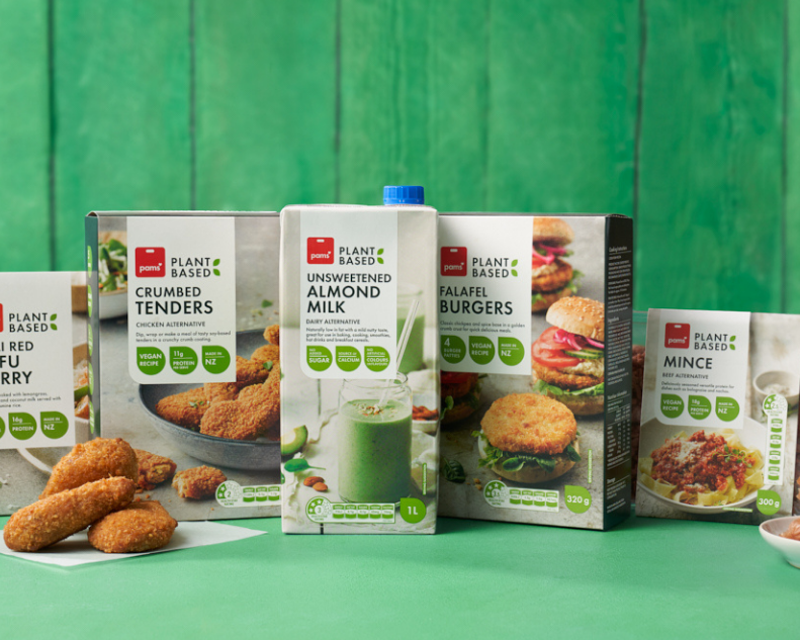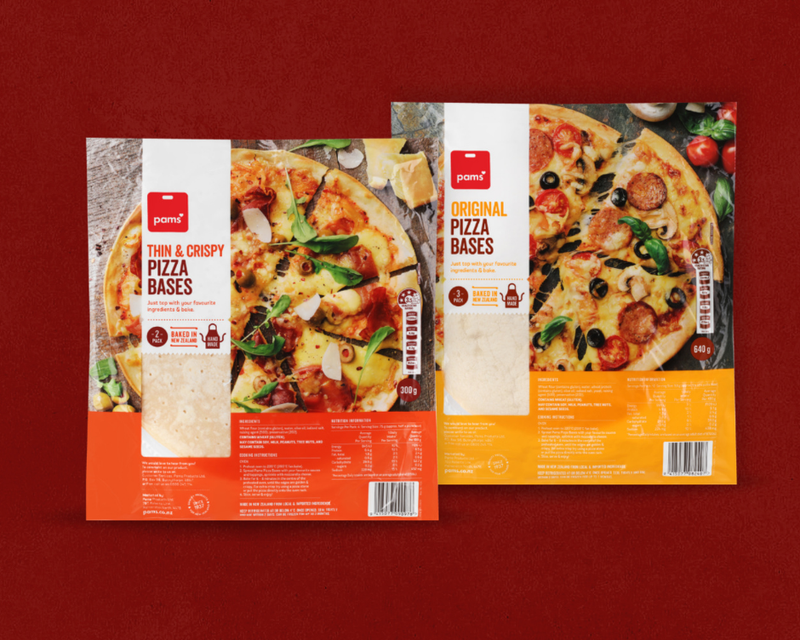Sustainability
For more than 80 years, Pams has been the local brand that New Zealanders trust – and it is a privilege to play an active role delivering value, quality, and care to our communities. As Kiwis ourselves, we care about the same things you do: caring for people and the planet.
Our mission is to empower our customers to make choices that they can feel good about, without ever compromising taste, quality or affordability. This means asking hard questions, holding ourselves to account, and rising to meet the challenges ahead - and we want to take you on every step of our journey so that you can feel confident that when you buy Pams, you know exactly what you’re getting.
Learn more about our sustainability commitments
1 / 0
Frequently asked questions
Pams are aware of the damage that the production of palm oil can cause when it is not sourced sustainably, particularly in relation to deforestation, and we are committed to using only certified sustainable palm oil.
We use palm oil in our products for several reasons relating to product taste, texture and shelf life. It is also worth noting that palm oil is the highest yielding vegetable oil crop, which means it is very efficient, requiring significantly less land than other crops to produce the same amount of oil.
Pams are a member of the Roundtable for Sustainable Palm Oil (RSPO). RSPO are a not-for-profit organisation who ensure that certified palm oil is produced against a set of environmental and social criteria.
We require all our Pams food suppliers to provide evidence that where palm oil is used as an ingredient it is RSPO certified.
Foodstuffs was one of the first retailers in New Zealand to sign up to the New Zealand Plastic Packaging Declaration in June 2018, and Pams are dedicated to working towards 100% reusable, recyclable or compostable packaging by 2025. This commitment is extended to all packaging types e.g. plastic, fibre, glass, metal.
We are constantly working with our Pams suppliers to look at better ways of packaging goods - all while ensuring the integrity and safety of our products.
Some plastics are easier to recycle than others. When we need to use plastic, we’ll choose more recyclable options, like Rigid PET that also contains some recycled material.
As Kiwis ourselves, we strive to use New Zealand manufacturers for our products as much as possible - but sometimes we do have to source products and ingredients from overseas so that we can continue to offer our customers products they love and trust at a reasonable price.
This can be due to a number of reasons: supply, demand, and cost of the product are just a few of the factors that Pams must consider when keeping prices affordable for our customers.
Sometimes we also need to look offshore for innovation where NZ manufacturers do not have the capability. We do however find that, once new products become popular, local producers often do make the capital investment and develop these capabilities - so we’re always reviewing our supply base and will always make the change to support local businesses when this becomes possible. Products imported from overseas must meet the requirements set by the Food Standards Australia New Zealand (FSANZ) and the New Zealand Ministry for Primary Industries (MPI). All products manufactured for Pams and are made to set specification which is set by Foodstuffs Own Brands.
As part of our commitment to responsible sourcing we ensure that our suppliers are held to the highest possible standards in environmental, ethical, health and safety, and labour-related practices.
As a result, we have chosen to work with Sedex, a membership organisation that provides one of the world’s leading online platforms for companies to manage and improve working conditions in global supply chains. Sedex provide practical tools, services and a community network to help companies improve their responsible and sustainable business practices. Find out more at https://www.sedex.com/.
Our work with them gives us robust tools to verify that our suppliers continue to meet our standards in the above areas.
All of our suppliers are expected to adhere to robust food safety standards and the relevant legislation, including labour laws, in place in either New Zealand or their country of business.
We place sustainability at the forefront of our sourcing decisions for our Pams products and our Responsible Seafood Policy informs our approach to sourcing seafood. All of Pams Canned Tuna/Salmon/Sardines Frozen White-fleshed fish are Marine Stewardship Council (MSC) certified. MSC is a science-based, independently audited certification that demonstrates the fish is sourced from a fishery where fish stock is healthy, environmental impacts are minimised and effective fisheries management is evident.
Tuna, Salmon, Sardines, White-fleshed fish are sometimes caught using pole and line, and at other times using different methods such as purse seine. To achieve MSC certification, fisheries are audited each year to demonstrate that the fishing method used actively avoids and minimises impact on other species and the marine habitat. Destructive fishing methods (such as the use of explosives) are not allowed.
We prohibit the use of genetically modified ingredients when producing food products under the Pams brand in line with our Genetic Modification Policy.
While we don't prohibit genetically modified (GM) feed in the production of our animal products such as meat, farmed seafood, eggs, and dairy, it's important to note we strictly prohibit the use of GM feed for all our organic meat products.
In line with Food Standards Australia New Zealand, we define genetically modified food and ingredients as those produced using gene technology that contain novel DNA or novel protein.



